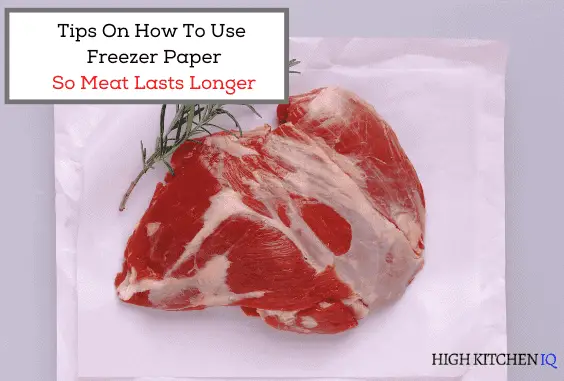How to Store Butter- 5 Tips to Make it Last Longer

Butter is a staple in our kitchens but many of us have no idea how to store butter properly!
So, in this article, we will share some tips on how to store your butter to make it last longer and retain its rich, creamy taste.
Can you store butter at room temperature?
Salted butter can generally be left out at room temperature for about 2 days. However, even though the salt in the butter helps to preserve it, if your room temperature rises above 70 degrees Fahrenheit, it’s time to store your butter in the fridge.
Unsalted Butter, on the other hand, should not be left out in room temperature. It does not have the benefit of salt to help preserve it.
However, depending on the temperature, storage container, and handling, it can survive for a day or two. But I recommend storing it in the fridge right away to prevent spoilage.
To learn more check out my article 5 Tips When Storing Butter without Refrigeration
How long will salted and unsalted butter last in the fridge?
According to the USDA and Martha Stewart, salted butter can be stored in the fridge for about 2 months and in the freezer for 6-9 months before it starts to go rancid.
Unsalted butter, on the other hand, should be stored in the refrigerator immediately and should be good for 1-3 months if stored properly. That is, at a temperature below 40°F (4°C). If it is stored in the freezer, it can last for 9-12 months before going bad.
5 Tips To Make Butter Last Longer
1- Store Your Butter In An Airtight Container
This will serve 3 purposes:
- It will prevent your butter from absorbing any odors or flavors from other foods in the fridge which can alter the taste.
- Stops mold, bacteria, and other microbes from getting to your butter. All of which can lead to faster spoilage.
- And, an airtight container will prevent your butter from constantly being exposed to air which can cause your butter to become rancid
What is the best airtight butter container to use?
Now sadly, most butter containers don’t do a good job of keeping odor, bacteria, and air away from your butter. But we recently came across the Quick Vac Butter Container by FoodLite.
You see Vacuum sealing is why butter in your supermarket can last so long but when opened starts to go bad. The Quick Vac Butter Keeper is designed to be vacuum-sealed to lock in freshness.
And thankfully, they are super easy to use.
Just place your butter inside and cover it, then press down on the flat green square pump on the lid 5 times. Doing this pumps all the air out and creates the vacuum seal.
The vacuum seal prevents your butter from oxidizing and becoming rancid. This also greatly reduces mold and bacteria growth on your butter by pumping the air out (dangerous microbes need air to multiply).
You can Click here to get our Quick Vac Butter Container on Amazon.
2- Refrigerate Your Butter Properly
As mentioned earlier, while butter can be left out in room temperature for at least a day or two, it is best to store it in your refrigerator.
Both salted and unsalted butter will last much longer and retain its taste.
The cool temperature of the refrigerator does 2 things:
- It helps to slow down the oxidation process, which is what causes butter to become rancid
- And it slows down mold and bacterial growth
You should keep your butter in the coldest part of your fridge, usually near the back of the shelves.
Avoid keeping it in the door or at the front of the shelves where it’s exposed to warm air every time you open it.
3- Avoid Exposure To Light
Butter is sensitive to light and can become rancid more quickly when exposed to sunlight or fluorescent light.
To prevent this, store your butter in a dark part of the refrigerator.
Some refrigerators come with an actual butter compartment that is cold and gets little to no light. If yours does not have this, then store it at the back of a shelf, to minimize light exposure and maximize on the coldness.
4- Freeze It
If you have excess butter that you won’t use within a reasonable timeframe, consider freezing it.
Butter can be frozen for several months without affecting its quality. As mentioned earlier, salted butter can be frozen for up to 9 months and unsalted butter for up to 12 months.
Wrap individual sticks tightly in aluminum foil or plastic wrap, or place them in a freezer bag. These help to prevent them from absorbing any freezer odors and freezer burn.
When you’re ready to use frozen butter, transfer it to the refrigerator (darkened corner at the back) to thaw slowly.
Avoid thawing frozen butter at room temperature or in the microwave. Rapid temperature changes can cause it to become grainy or lose its texture.
5- Avoid Cross-Contamination
When using butter, always use clean utensils to prevent cross-contamination.
If use your bare hands or dirty utensils you risk introducing new bacteria to your butter. This can speed up the rate of your butter spoiling and becoming moldy.
How Do You Know When Your Butter Has Spoiled?
With butter, it all about the smell, taste, and texture.
Any sour or rancid smell or taste indicates that your butter has gone bad. And don’t worry, a small taste of rancid butter is perfectly fine and won’t get you sick!
Of course, any visible signs of mold or discoloration on your butter means that it has gone bad.
And if you try to spread it and it seems lumpy or grainy (noth smooth) then it has most likely gone bad.
Sources
Martha Stewart – Is It Safe to Leave Butter Out on the Counter?






